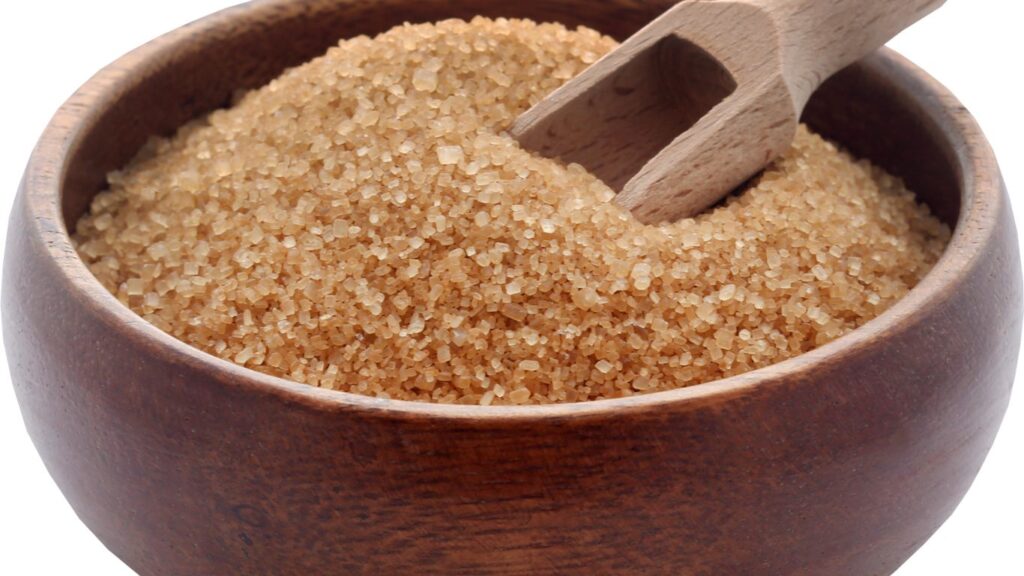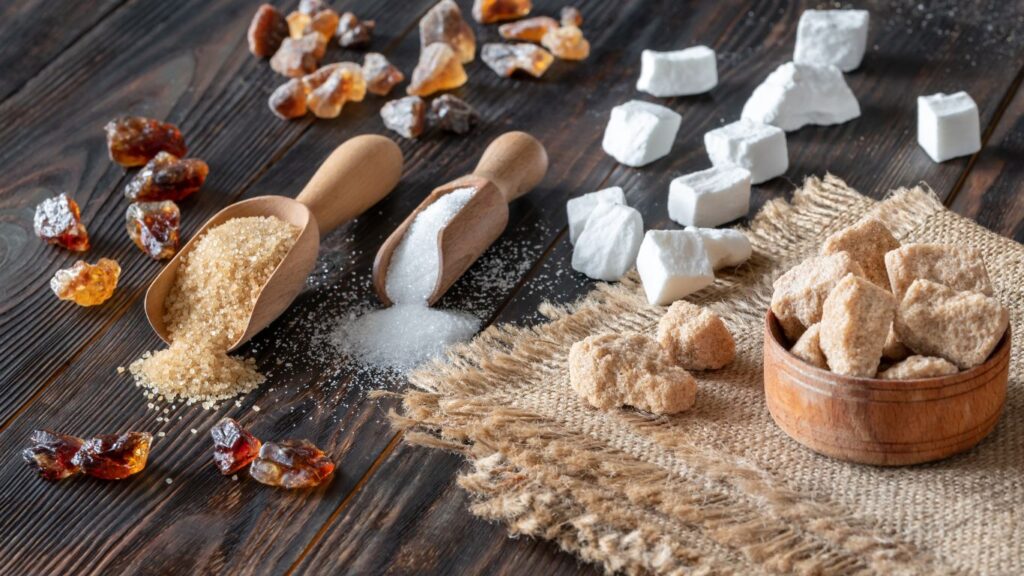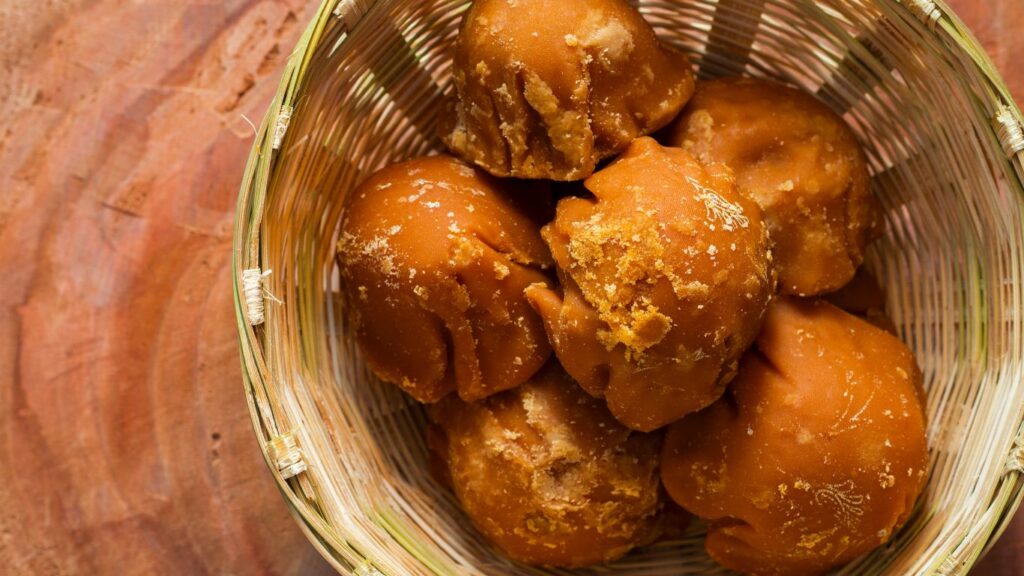
Brown sugar is a popular substitute for white sugar, and many people think it’s a much healthier option. However, is brown sugar as healthy as we think it is? Or is it just a sweet deception?
Brown sugar is also costlier than white sugar, so is it worth spending extra bucks for the supposed health reasons?
Well, the answer might shock you! So, if you are prepared, read on to find out as we delve into the truth behind brown sugar.
What is Brown Sugar?

Brown sugar is another alternative to white sugar and is made from sugarcane or sugar beets. It has a characteristic distinctive brown color and a slightly caramel-like flavor. Moreover, unlike white sugar, which is refined and processed to remove impurities, brown sugar retains some of the natural molasses content from the sugarcane or sugar beet juice.
The process of making brown sugar begins with the extraction of juice from sugarcane or sugar beets. This juice undergoes a series of steps to remove impurities and concentrate the sugar content. During this process, some of the molasses is removed to create white sugar. However, for brown sugar, a portion of the molasses is left intact or reintroduced after refining.
The molasses is what gives brown sugar its characteristic color and flavor. It contains various compounds like caramel, which contribute to the rich, slightly nutty taste of brown sugar.
Brown Sugar vs. White Sugar: Understanding the Difference

The primary difference between brown sugar and white sugar lies in their processing. White sugar, also known as granulated sugar, undergoes an extensive refining process to remove impurities and moisture. This process involves crushing sugarcane or sugar beets to extract the juice, which is then filtered, clarified, and crystallized to produce raw sugar.
Brown sugar is made using a less refined process compared to white sugar. It starts with the same extraction of sugarcane or sugar beet juice, but during processing, some of the natural molasses is retained or reintroduced after refining. This gives brown sugar its color, flavor, and moisture content.
Moreover, white sugar has a neutral sweet taste, while brown sugar has a rich caramel-like flavour. This flavour makes it popular for use in dishes as it can add warmth and depth to recipes.
Nutritional Face-off: Brown Sugar Calories & Mineral Content VS White Sugar
Both brown sugar and white sugar provide the same amount of calories per serving. On average, both brown sugar and white sugar contain about 16 calories per teaspoon (4 grams).
However, the difference lies in their mineral content, which is why brown sugar might be considered as a healthier option by some people.
Brown sugar contains small amounts of minerals like calcium, potassium, iron, and magnesium, which are derived from the molasses content. While these minerals are present in trace amounts, they are largely absent in white sugar due to the extensive refining process it undergoes.
However, these minerals are found in trace amounts in brown sugar, and don’t possess any major health benefits for us.
Thus, white sugar and brown sugar calories are the same, but the difference lies in their mineral content, which is why some people take it to be a healthier option.
Brown Sugar vs. Jaggery: A Sweet Comparison

Both brown sugar and jaggery are traditional sweeteners used across India. However, there are some key differences between the two, where jaggery might seem like a better sweetener option. So, let’s have a look.
1. Processing
Brown is partially processed from molasses which gives it the brown color. Jaggery, on the other hand, is made by boiling sugarcane juice or date palm sap until it solidifies. It is made without any processing, chemicals, or other additives.
2. Nutrient-content
Brown sugar retains some minerals like calcium, potassium, iron, and magnesium from the molasses content, and the amounts are relatively small.
However, jaggery is considered a more nutritious alternative to brown sugar due to its higher mineral content and the presence of vitamins and antioxidants. It contains minerals such as iron, magnesium, potassium, and vitamins like B-complex vitamins and vitamin C.
3. Health benefits
Although brown sugar offers us some minerals, it is still a processed sweetener and can contribute to weight gain, imbalances in blood sugar, and even chronic diseases.
However, jaggery is often considered a healthier alternative to refined sugars due to its higher nutrient content and minimal processing. Moreover, it has a lower glycemic index compared to white sugar, and the presence of vitamins and minerals in jaggery can provide some health benefits, like improved digestion, enhanced immunity, and better nutrient absorption.
Thus, when it comes to comparing brown sugar vs jaggery, the latter clearly emerges as the winner.
The Health Debate: Is Brown Sugar Healthy?
So, is brown sugar healthy?

Let’s look at the health implications of it in a broader light.
1. Nutritional content
Brown sugar is often touted as a healthier option than white sugar due to its slightly higher mineral content, primarily derived from the molasses content.
However, the amounts of these minerals in brown sugar are minimal and do not significantly contribute to overall nutrient intake. Thus, both brown and white sugar are made out of sucrose that provide us with empty calories without any nutritional benefits.
2. Effect on blood sugar levels
Both brown sugar and white sugar have a similar impact on blood sugar levels when consumed. They cause a rapid spike in blood glucose levels. In addition to this, high blood sugar levels can contribute to insulin resistance, metabolic syndrome, and an increased risk of type 2 diabetes.
3. Tooth decay
Sugar consumption, regardless of the type, is a significant contributor to tooth decay and cavities. When sugar is consumed, bacteria in the mouth feed on it and produce acids that erode tooth enamel, leading to decay.
4. Chronic diseases
Excessive consumption of sugar, including both brown and white sugar, has been linked to an increased risk of chronic diseases such as obesity, heart disease, and certain types of cancer.
As you can see from the points discussed above, brown is NOT a healthier alternative to white sugar.
The Organic Question: Does Organic Brown Sugar Change the Equation?
Organic brown sugar is a type of brown sugar that is produced from organically grown sugarcane or sugar beets. Unlike conventionally grown crops, organic sugarcane and sugar beets are cultivated without the use of synthetic pesticides, herbicides, fertilizers, or genetically modified organisms (GMOs).
However, organic brown sugar is the same as normal brown sugar, with the only difference in the way the sugarcane or sugar beets are grown.
Thus, organic brown sugar poses the same health risks as normal brown sugar and white sugar, and isn’t a healthier alternative to normal brown sugar.
Brown Sugar for Diabetics: A Cautionary Note
For individuals with diabetes, managing sugar intake is critical for maintaining blood glucose levels within a healthy range. This also helps prevent health complications associated with this condition.
Brown sugar consumption, like any other form of sugar, can pose challenges for diabetics due to its impact on blood sugar levels. Thus, diabetics are requested to refrain from excessive consumption of sugar, be it white or brown, and not get fooled by the packaging labels, which often market brown sugar as a healthier option.
Thus, brown sugar for diabetics is a big NO, the same as with white sugar.
Parting thoughts
So is brown sugar healthy?
Contrary to popular belief, the points outlined above demonstrate that brown sugar is not a healthier substitute for white sugar
While brown sugar may seem like a healthier option compared to white sugar, the truth is that it offers little in terms of nutritional benefits.
Both types of sugar should be consumed sparingly as part of a balanced diet, with a focus on whole, nutrient-dense foods.
Thus, by being mindful of your sugar intake, you can still opt for healthy and sweet alternatives and satisfy your sweet tooth once in a while.
Ready to transform your health? Book a consultation with the best nutritionist in Bangalore today and embark on your journey to a healthier, happier you!






